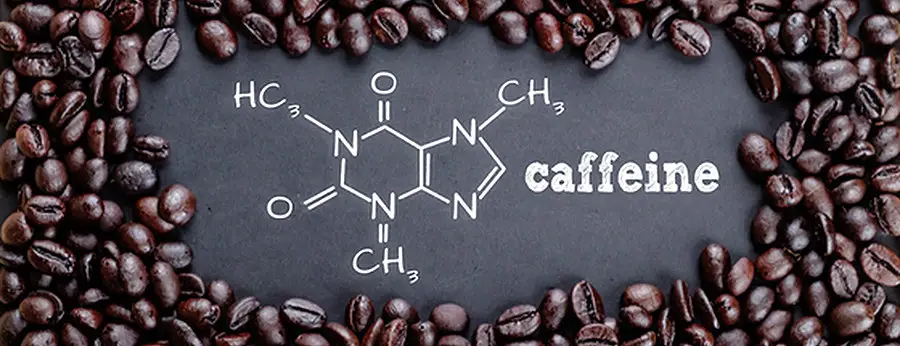
Pre-workouts are an effective form of energy booster before working out. But they may not work for everyone. Fortunately, some other options are healthier, and you can still insert them into your daily routine. The energy spike that comes with pre-workouts does not always have to come at a health cost.
Natural alternatives to pre-workouts include a cup of coffee or tea right before the workout. Eating a healthy amount of carbs and protein half an hour before your workout starts is also an excellent way to fuel your workout. Of course, getting proper rest the day before is necessary as well.
Pre-workouts have become increasingly popular lately. After all, they give an excellent (and quick) source of energy when you need it. Specifically, it can help if you need that extra boost before your workout. We all know that there are some days when we just don’t feel like getting up and going to the gym. Even the most addicted gym-goers have trouble with consistency at times.
However, most pre-workouts have unhealthy substances in them. For example, one of the main components of a pre-workout is caffeine. Caffeine is fine in certain amounts. However, most pre-workouts contain about 3 cups of coffee’s worth of caffeine. That can add up into an unhealthy amount gradually.
Fortunately, pre-workouts are not the only way to get a boost when you’re feeling down. There are other methods and substances that you can take to feel that extra spring in your step. Even without a pre-workout mix, you should be able to complete your workout with these alternatives.
Why Can Pre-Workouts Be Bad for You?
Before we get into the alternatives, let’s first try to understand what is in pre-workouts that can make them bad for you. After all, pre-workouts should work like how companies advertise, right?
In a way, they do work like they are supposed to. They have components that research has already proven to be effective. In general, the components in pre-workouts will work for you. However, some ingredients may not be safe in the amounts that some pre-workouts contain.
Additionally, pre-workouts are not FDA-approved. This article is not to discourage you from using pre-workouts. However, the lack of FDA approval means that there’s no regulating body that tells you that what you’re ingesting is completely safe. It does not have to mean that pre-workouts are completely bad for you. Most supplements are not FDA approved anyway. But you should be wary about the contents of pre-workouts to make sure that they are safe for you.

Caffeine
Pretty much, most pre-workouts make use of caffeine to boost energy. This is the main driver behind every pre-workout on the market. Caffeine can make you more alert and help you retain energy while still working out. Take note, though, that pre-workouts’ caffeine contents can range from 150mg and 500mg per serving.
| Low caffeine users | <200 mg/day |
| Moderate caffeine users | 200-400 mg/day |
| High caffeine users | >400 mg/day |
If you are not a habitual caffeine user, it may be best to stay away from regular pre-workouts. However, there are also caffeine-free variants. Take note that while the table indicates more than 400mg as safe, it’s still not safe to go way above and beyond that. In this study by Cappelletti et al. (2015), the researchers found that more than 500-600mg of caffeine in a day could lead to negative effects. These results include increased anxiety and tremors.
The danger in caffeine comes from habitual use. Caffeine gives you energy by stressing you out. Over time, this increases your levels of chronic stress, which is a precursor for almost every disease. In addition, caffeine can mess up your sleep. For some people, even a single cup in the morning affects sleep patterns. Obviously, this will have an impact on recovery and long-term performance.

Excessive Artificial Sweeteners or Preservatives
Pre-workouts also have their fair share of artificial sweeteners and preservatives. You may want to note the ingredient list and the nutritional information on the pre-workout you use or intend to use.
Artificial sweeteners do not contain extra calories and add flavor to your drink. But they could come at a cost. Some sugar substitutes are FDA approved. But take note that while there’s a lot of research on their safety, most of these studies have limitations. These limitations include the lack of long-term and high dosage research studies on sugar substitutes (Tandel, 2011).
Alternatives to Pre-Workouts
1. Tea
Apart from containing small amounts of caffeine, tea also has some healthy antioxidants that can keep you going. In this study by Torquati et al. (2018), the researchers found that women who consumed more than a cup of tea a day were more likely to fulfill physical activity requirements.
L-theanine is a common amino acid found in tea leaves. It aids with caffeine absorption and allows caffeine to absorb in the body more slowly. This will result in a longer-lasting energy boost with less of the negative effects of a cup of coffee.
2. Coffee

Yes, caffeine can have its downsides. But if you consume it properly, a cup of coffee can also work in your favor. You should stay within the healthy range of caffeine and drink only a cup of two per day. And if you regularly drink coffee anyway, you can time it so that you’ll feel the energy boost right before you work out.
Take note that you have to be responsible for your coffee consumption. If you are trying to cut back on caffeine, this might not be the best choice for you. In a pinch, however, it could be a good idea, especially if it’s all you have on hand.
3. Good Sources of Protein
Eating an excellent source of protein for around 30-45 minutes before your workout will also boost your energy levels.
Here are some healthy sources of protein:
- Plain Greek yogurt- If you exercise in the mornings, a serving of plain Greek yogurt is a great protein source. You could have up to 20 grams of protein in a single serving. The plain option is great since you are avoiding all the unnecessary sweeteners.
- Eggs- Of course, you can’t miss the classic eggs. You can make them easily for breakfast or at any time of the day. The egg whites specifically contain more protein.
- Oats- Oatmeal is easy to prepare for breakfast. Plus, it contains tons of other nutrients, such as fiber. You can customize your oatmeal depending on your preference, and you can even add other sources of protein, such as almonds.
4. Good Sources of Carbohydrates
Carbohydrates are one of the body’s main sources of energy. A healthy serving of carbohydrates could significantly boost your energy levels while working out. Take note, though, to stick to healthier options for carbohydrates such as the following:
- Sweet potatoes- Sweet potatoes are incredibly versatile and easy to cook source of carbs. You can boil them and eat directly or cook however you like. On the plus side, they’re not bland and taste good.
- Oats- When you eat oats, you also eat a healthy dose of carbs, which is perfect since consuming carbs and protein before a workout can significantly help boost energy.
Remember to watch your carb consumption, though. If you want more consistent energy levels you might even be better off trying a low-carb diet like keto.
5. Proper rest
Although technically, this is not a pre-workout that you can apply right before a workout, getting the right amount of sleep and rest from the previous night is incredibly important. If you try to exercise on only a few hours of sleep, you’re bound to feel groggy and will even feel nauseous. Make sure to catch up on those Zs and let your body rejuvenate.

